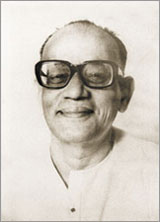A Quote by Jane Leavy
In 1927, my father descended the heights and took his place as the newly appointed water boy for his beloved New York football Giants.
Related Quotes
When the father dies, he writes, the son becomes his own father and his own son. He looks at is son and sees himself in the face of the boy. He imagines what the boy sees when he looks at him and finds himself becoming his own father. Inexplicably, he is moved by this. It is not just the sight of the boy that moves him, not even the thought of standing inside his father, but what he sees in the boy of his own vanished past. It is a nostalgia for his own life that he feels, perhaps, a memory of his own boyhood as a son to his father.
Rattigan's world demanded unwavering trust in principles, loyalty, and virtue. At the time of this play - Rattigan was writing this play in 1947 about an incident that took place in 1914 - should a boy say he didn't do something, his father would believe him; a British father would take the defense of his son's honor to his grave.
Behold the Child among his new-born blisses
A six years' Darling of a pigmy size!
See, where 'mid work of his own hand he lies,
Fretted by sallies of his mother's kisses,
With light upon him from his father's eyes!
See, at his feet, some little plan or chart,
Some fragment from his dream of human life,
Shaped by himself with newly-learned art.
The Little Mute Boy The little boy was looking for his voice. (The king of the crickets had it.) In a drop of water the little boy was looking for his voice. I do not want it for speaking with; I will make a ring of it so that he may wear my silence on his little finger In a drop of water the little boy was looking for his voice. (The captive voice, far away, put on a cricket's clothes.) Translated by William S. Merwin
My father came from Germany. My mom came from Venezuela. My father's culturally German, but his father was Japanese. I was raised in New York and spent two years in Rio. My parents met at the University of Southern Mississippi, and they had me there, and then we moved to New York. I'm not very familiar with Mississippi.
Heat flushed Chauncey's neck; it took all his energy to curl his hands into two weak fists. He laughed at himself, but there was no humor. He had no idea how, but the boy was inflicting the nausea and weakness inside him. It would not lift until he took the oath. He would say what he had to, but he swore in his heart he would destroy the boy for this humiliation.
When father was younger than me he came to New York to be in musicals and was in a number of them. But he, at that time in his life, didn't feel he could fully commit to a creative life - he had this voice in the back of his head that said, "I need to make money." So that propelled him to open up an ice cream parlor, which then spawned into a number of different food businesses and took over his life for 20 years.
Shinji slowly fell forward onto his face. Debris bounced up on impact. It took less than thirty seconds for the rest of his body to die. The memento of his beloved uncle--the earring worn by the woman he loved--was now stained with the blood running down Shinji's left ear, reflecting the glow from the red flames of the farm building. And so the boy known as the Third Man, Shinji Mimura, was dead.






































